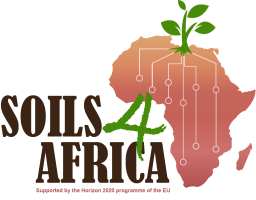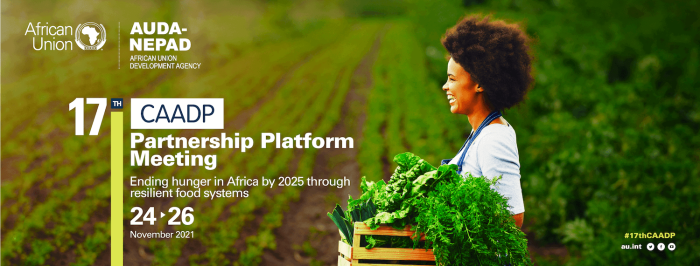


A number of key high-level organisations from the African agricultural sector endorsed the Soils4Africa project’s efforts towards building a continental-scale soil information system (SIS), at a webinar held as part of the 17th Comprehensive Africa Agriculture Development Programme (CAADP) on November 24, 2021.
Representing H.E. Ambassador Josefa Sacko (African Union Commissioner, Department of Agriculture, Rural Development, Blue Economy and Sustainable Environment), Prof. Afeikhena Jerome, Special Advisor to the African Union Commission, declared the Commission’s support to the endeavor and concept behind the SIS. Noting that the SIS will have scope for further expansion, he said that further expansion would be important for the system to become central to African policymaking in the area of sustainable intensification of agriculture.
In his endorsement statement, Dr. Tilahum Amede from Alliance for Green Revolution in Africa (AGRA) noted the diversity in natural resources, farming systems, and yield gap across the continent; which necessitated the need for a soil information system that could provide good-quality local-level data to farmers, pastoralists and organisations catering to them.
On behalf of the Food, Agriculture and Natural Resources Policy Analysis Network (FANRPAN), Dr. Simba Sibanda also appreciated the potential of the soil information system as a source of evidence for agricultural policymaking.
The Centre for Coordination of Agricultural Research and Development for Southern Africa (CCARDESA) was represented by Dr. Baitsi Podisi, who expressed hope that the SIS would form a basis of decision support systems in agriculture , and offered to collaborate with the project to bring it to fruition.
Association for Strengthening Agricultural Research in Eastern and Central Africa’s (ASARECA) Dr. Enoch Warinda stated that soil degradation was of particular concern to the organisation as it affected all its 14 member states. Expressing his support to the idea and efforts behind the SIS, he pointed out that the open-access nature of the system would be a key aspect of its utility to solving problems cutting across sectors such as soil and water.
Prof. Victor Chude endorsed the concept of the SIS on behalf of the 38 countries he represented as Director of the Africa chapter of the Global Soil Partnership. At the same time, he called for action to ensure that the standard methodologies developed as part of the SIS are simple and repeatable in the African context.